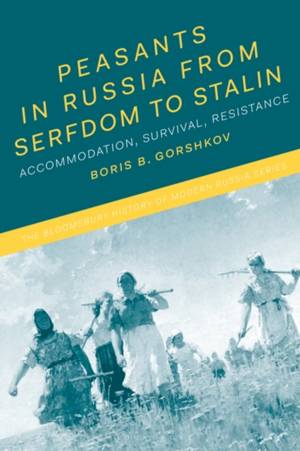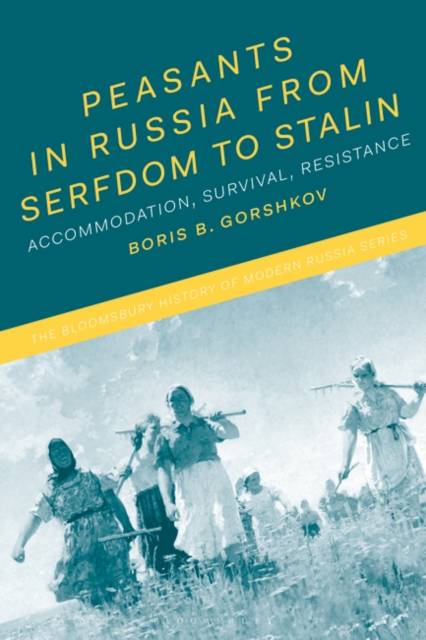
- Afhalen na 1 uur in een winkel met voorraad
- Gratis thuislevering in België vanaf € 30
- Ruim aanbod met 7 miljoen producten
- Afhalen na 1 uur in een winkel met voorraad
- Gratis thuislevering in België vanaf € 30
- Ruim aanbod met 7 miljoen producten
Zoeken
€ 79,95
+ 159 punten
Uitvoering
Omschrijving
The peasantry accounted for the large majority of the Russian population during the Imperialist and Stalinist periods - it is, for the most part, how people lived. Peasants in Russia from Serfdom to Stalin provides a comprehensive, realistic examination of peasant life in Russia during both these eras and the legacy this left in the post-Soviet era.
The book paints a full picture of peasant involvement in commerce and local political life and, through Boris Gorshkov's original ecology paradigm for understanding peasant life, offers new perspectives on the Russian peasantry under serfdom and the emancipation. Incorporating recent scholarship, including Russian and non-Russian texts, along with classic studies, Gorshkov explores the complex interrelationships between the physical environment, peasant economic and social practices, culture, state policies and lord-peasant relations. He goes on to analyze peasant economic activities, including agriculture and livestock, social activities and the functioning of peasant social and political institutions within the context of these interrelationships. Further reading lists, study questions, tables, maps, primary source extracts and images are also included to support and enhance the text wherever possible. Peasants in Russia from Serfdom to Stalin is the crucial survey of a key topic in modern Russian history for students and scholars alike.Specificaties
Betrokkenen
- Auteur(s):
- Uitgeverij:
Inhoud
- Aantal bladzijden:
- 256
- Taal:
- Engels
- Reeks:
Eigenschappen
- Productcode (EAN):
- 9781350126381
- Verschijningsdatum:
- 22/08/2019
- Uitvoering:
- Paperback
- Formaat:
- Trade paperback (VS)
- Afmetingen:
- 156 mm x 234 mm
- Gewicht:
- 358 g

Alleen bij Standaard Boekhandel
+ 159 punten op je klantenkaart van Standaard Boekhandel
Beoordelingen
We publiceren alleen reviews die voldoen aan de voorwaarden voor reviews. Bekijk onze voorwaarden voor reviews.











